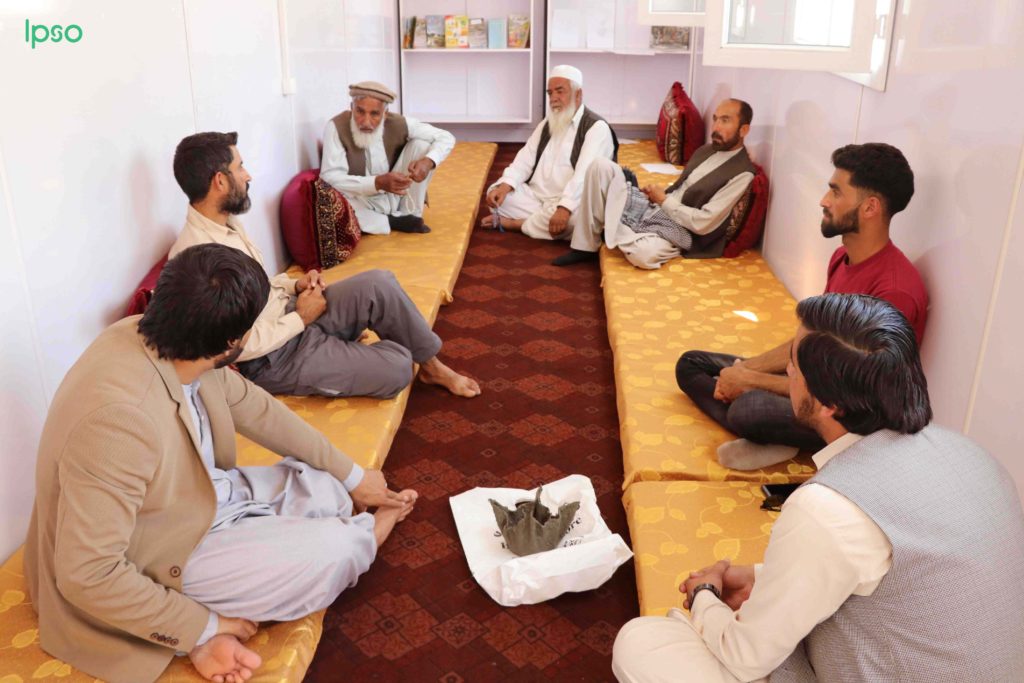Kapisa is a very diverse place, in social terms, but this does not always translate into recognition. While the province is home to Pashtun, Tajik, and Pashaie communities who often live side by side, their attitudes towards each other are at times negative.
This is particularly evident in how Pashaie residents are sometimes treated. While people from other ethnic groups expect to be treated as guests – providing food and shelter for visitors is a fundamental tenet of Afghan tradition – when they travel in districts settled by Pashaie in Kapisa, they often try to find ways of discouraging Pashaie villagers from visiting their area.
One of those voluntarily working in Kapisa province to address misconceptions about the Pashaie community explains: “Many people in Kapisa know little about our Pashaie communities and this creates a sense of division and mistrust among residents who belong to other ethnic groups. The notion that we should all have the right to be treated equally, regardless of our ethnicity, class, belief, gender or language is not widely understood.”
Afghans are all too familiar with stories of those who suffer discrimination simply for belonging to a ‘different’ group from those in a position of privilege or power. As Metra Kohestani explains: “Youngsters listen to their parents or schoolfriends joking or making derogatory remarks about other ethnic groups and this fosters their prejudices and attitudes towards others.”
Discrimination strikes at the very heart of being human, as it lessens their perceived value to society simply because of their identity or beliefs. It fosters a sense of ‘them’ and ‘us’ that encourage mistrust and, at times, inequality.
Faryal is a member of a Tajik community in Kapisa and she says: “The prejudices of our elders are passed down the generations through stories and anecdotes that deepen division between our communities. When we hear such comments we feel the need to respond with a respectful smile but in fact we should encourage such people to show greater tolerance.”
With this aim in mind, Metra Kohestani with other volunteers are challenging such negative attitudes through activities with the various communities, where they question deeply-held prejudices so that we might all live in harmony. By bringing people from different ethnic groups together in cultural dialogues, it helps us to know each other better and understand our distinct traditions – and those we share.”
A province with many popular geographic landmark such as the ‘singing’ sands at Regrawan (mentioned by the 16th century Mughal emperor Babur), Kapisa also has historic sites such as Zargar Abdullah Tower in Sayad district. Taghab and Nijrab districts are known for their fruit, especially pomegranates and in the past saw many visitors in the late summer when these ripened.
Faryal explains: “Since our province has many tourists, we have a responsibility to be welcoming to those from all parts of the country and not be judgmental. If we can challenge ethnic prejudice within our communities, we’ll be better able to be good hosts for our visitors, and also to develop ourselves.”
Ethnic discrimination is of course not confined to Kapisa, nor just to Afghanistan, for it is the root-cause of many conflicts across the world and at times fuels atrocities against certain communities. As Mehtra explains: “we traditionally live simple lives: let us reach out across our communities to overcome prejudice.”















